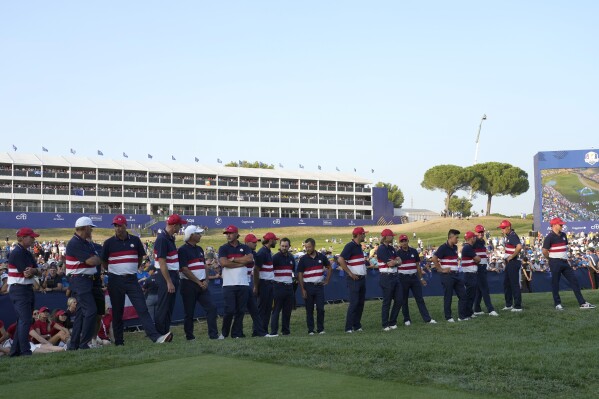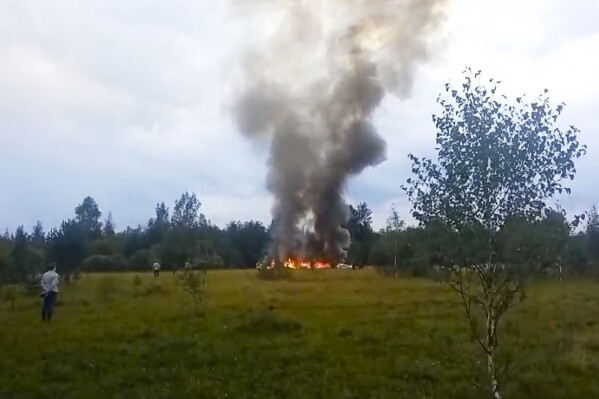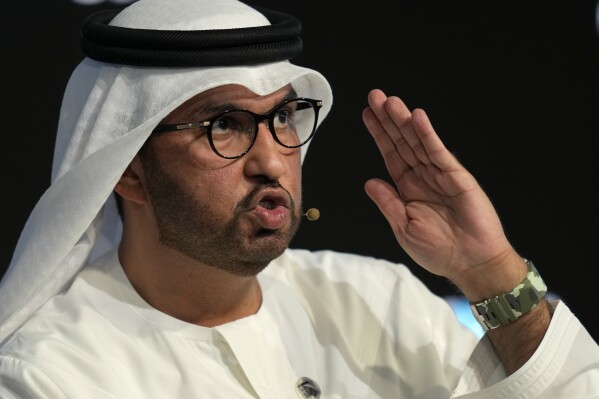EU summit to look at changes the bloc needs to make to welcome Ukraine, others as new members
GRANADA, Spain (AP) — A day after pledging Ukrainian President Volodymyr Zelenskyy their unwavering support, European Union leaders on Friday will face one of their worst political headaches on a key commitment — how and when to welcome debt-laden and battered Ukraine into the bloc.
The 27-nation EU has said since the start of Russia’s invasion in February 2022 that at the end of the war it would work steadfastly on “lasting unity” that would eventually translate into Ukraine’s membership in the wealthy bloc.
For a nation fighting for its very survival, that moment cannot come quickly enough. For the bloc itself, that remains to be seen.
On Friday, the leaders will assess “enlargement” as they call it at their informal summit in southern Spain’s Granada. Beyond Ukraine, several western Balkan nations and Moldova are also knocking with increasing impatience at the door.
 No injuries as fire at Ryder Cup course in Italy quickly brought under control
No injuries as fire at Ryder Cup course in Italy quickly brought under control
 Hand grenade fragments were found in the bodies of victims in Prigozhin’s plane crash, Putin claims
Hand grenade fragments were found in the bodies of victims in Prigozhin’s plane crash, Putin claims
 Developed nations pledge $9.3 billion to global climate fund at gathering in Germany
Developed nations pledge $9.3 billion to global climate fund at gathering in Germany
In his summit invitation letter, EU Council President Charles Michel asked the leaders “critical questions, such as: What do we do together? How do we decide? How do we match our means with our ambitions?”
That has already proven difficult enough for the current members, especially with decades-old rules still on the books that were thought out for a dozen closely knit nations. At the time, deciding by unanimity and veto rights were still considered workable procedures, and money was still relatively easy to come by.
The thought of adding a half dozen nations much poorer than almost all current members has several already grabbing for the hand brake.
Michel believes that new member countries should be welcomed in by 2030. Last month, the presidents of Serbia, Kosovo, Bosnia, Montenegro, North Macedonia and Albania also said that enlargement should happen “not later than 2030.”
But EU Commission President Ursula von der Leyen has insisted that “accession is merit-based.” She says the progress these countries make in aligning their laws with EU rules and standards should dictate the pace of membership, rather than some arbitrary deadline. The bureaucratic pace of aligning with thousands of EU rules can sometimes take well over a half dozen years.
Ukraine and Moldova were officially granted EU candidate status earlier this year — an unusually rapid decision for the EU and its go-slow approach to expansion, prompted by the war in Ukraine.
At the same time, the EU’s leaders also agreed to recognize a “European perspective” for another former Soviet republic, Georgia.
Serbia and Montenegro were the first western Balkan countries to launch membership negotiations, followed by Albania and Macedonia last year. Bosnia and Kosovo have only begun the first step of the integration process.
EU officials fear Russia could try to destabilize the Balkans, which went through a bloody war in the 1990s, and thus shift world attention from its aggression in Ukraine. Russia’s Balkan ally Serbia has refused to join EU sanctions against Moscow, although Belgrade says it respects Ukrainian territorial integrity.
One key date is already set for Ukraine: In December, the EU nations will decide whether to open full-on accession talks.
___
Casert reported from Brussels.
Disclaimer: The copyright of this article belongs to the original author. Reposting this article is solely for the purpose of information dissemination and does not constitute any investment advice. If there is any infringement, please contact us immediately. We will make corrections or deletions as necessary. Thank you.



